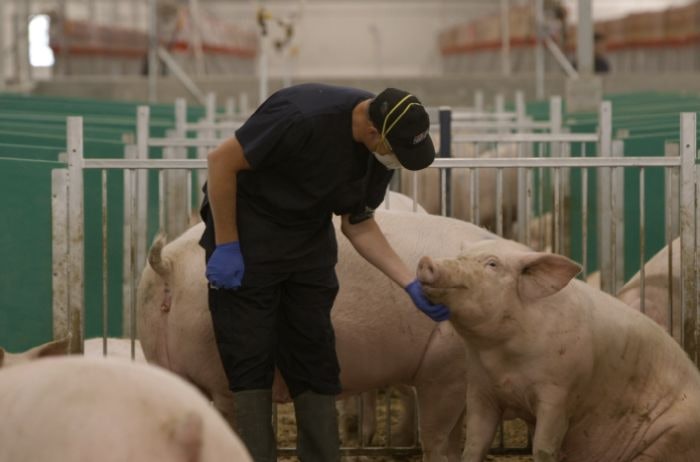In a decisive move reshaping Toronto’s food manufacturing landscape, Maple Leaf Foods shareholders have overwhelmingly approved the spinoff of the company’s historic Canada Packers division. The vote, which took place yesterday at the company’s downtown headquarters, passed with nearly 97% support, signaling strong investor confidence in the strategic restructuring.
“This marks a pivotal moment in our company’s evolution,” said Michael McCain, CEO of Maple Leaf Foods, during the shareholder meeting. “By separating these operations, we’re creating two focused enterprises that can better respond to their unique market opportunities.”
The Canada Packers division, which represents approximately 30% of Maple Leaf’s current operations, will become an independent, publicly-traded company by early next quarter. The spinoff includes five processing facilities across Ontario and employs roughly 2,300 workers.
For those of us covering Toronto’s business scene, this development represents more than just corporate restructuring. Canada Packers has deep historical roots in our city, dating back to 1927 when it was formed through the merger of several smaller meat packers. Its distinctive red and white logo has been a fixture in Canadian grocery aisles for generations.
Industry analysts from RBC Capital Markets suggest the move will allow both companies to operate with greater agility. “This separation creates clearer investment propositions,” noted Patricia Mohr, commodities market specialist. “The new Canada Packers can focus on traditional meat processing, while Maple Leaf continues its push into plant-based alternatives and premium protein products.”
The spinoff comes at a time when food manufacturing faces unprecedented challenges. Supply chain disruptions, changing consumer preferences, and sustainability pressures have forced many established companies to reconsider their traditional business models.
According to data from Agriculture and Agri-Food Canada, the country’s food manufacturing sector contributes over $32.8 billion annually to the national economy, with nearly 20% of that production centered in the Greater Toronto Area.
For workers at the affected facilities, questions remain about potential operational changes. Union representatives from UFCW Local 175, which represents many Canada Packers employees, have expressed cautious optimism about the transition.
“We’ve received assurances that all collective agreements will be honored,” said Shawn Haggerty, president of UFCW Local 175. “We’ll be watching closely to ensure this corporate restructuring doesn’t negatively impact our members’ livelihoods.”
The new Canada Packers will inherit several established brands and processing capabilities, primarily focused on traditional meat products. Meanwhile, Maple Leaf Foods will retain its recently expanded plant-protein division and premium meat operations, including the Greenfield Natural Meat Co. brand.
Walking through Toronto’s St. Lawrence Market last week, I couldn’t help but notice the prominence of both Maple Leaf and Canada Packers products at various meat counters. Several vendors I spoke with expressed curiosity about how the separation might affect product availability and pricing.
“We’ve carried their products for decades,” said Tony Carnevale, a third-generation butcher at the market. “Customers recognize these brands and trust them. I hope this business change doesn’t alter the quality we’ve come to expect.”
From an investment perspective, shareholders will receive shares in the new Canada Packers entity proportional to their current Maple Leaf holdings. The tax-free distribution has been structured to minimize immediate financial impacts on investors while creating what the company calls “two pure-play investment opportunities.”
The Ontario Teachers’ Pension Plan, which holds approximately 11.8% of Maple Leaf shares, publicly supported the spinoff ahead of the vote. Their backing likely influenced many institutional investors to follow suit.
Looking ahead, both companies face distinct challenges and opportunities. The new Canada Packers will need to navigate increasing competition from global meat processors, while Maple Leaf continues its ambitious sustainability initiatives, including its commitment to become carbon neutral by 2030.
For Toronto’s economy, the creation of a new corporate headquarters will bring additional executive positions to the city. The company has announced plans to establish its head office in the Liberty Village area, adding to the neighborhood’s growing business community.
As this story continues to develop, I’ll be watching closely for announcements regarding the new company’s leadership team and strategic direction. The spinoff is expected to be completed by April, pending final regulatory approvals.
In a market increasingly defined by specialization, this corporate separation reflects broader trends reshaping Canada’s food manufacturing sector. Whether this strategic move delivers the shareholder value promised remains to be seen, but it certainly marks a significant chapter in the story of one of Toronto’s most recognizable food companies.







